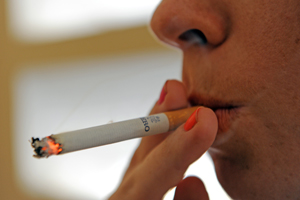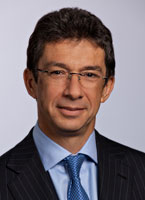People with mental health conditions (depression, ADHD for example) and substance use disorders are estimated to account for 40 percent of the cigarettes smoked in the US, according to a press note issued by the Truth Initiative.
Meanwhile, it says that 38 percent of military smokers start after enlisting.
‘The much higher than average prevalence of tobacco use among these two groups is not a coincidence,’ the press note said. ‘For decades, the tobacco industry has exploited these, and many other populations, including African-Americans, low-income communities and LGBTQ individuals, to sell its products.
‘While the industry positions this as targeting and consumer choice, the facts reveal a darker pattern of exploitation.’
Truth, which the note described as one of the largest and most effective youth smoking prevention campaigns, is reportedly teaming up with correspondents Ryan Duffy and Kaj Larsen on a new, documentary-styled campaign that will premiere on August 27 during the 2017 MTV Video Music Awards.
The campaign aims to engage, motivate and activate young people to end ‘this history of exploitation and finish tobacco for good’.
Titled Business or Exploitation?, the campaign is said to expose the tobacco industry’s exploitation of individuals with mental health conditions and members of the military, with startling facts, such as:
- Big Tobacco has given away free cigarettes to psychiatric facilities.
- In the past, a major tobacco company saw the military as an attractive marketing opportunity because of its young adult servicemen that the company described as ‘classic downscale smoker’, ‘less educated’, ‘part of the wrong crowd’, ‘in trouble with authorities’ and having ‘limited job prospects’.
“The tobacco industry makes $37 billion a year selling cigarettes to people with mental illness,” said Robin Koval, CEO and president of the Truth Initiative. “This is a prime example of how the industry sees certain populations solely as business opportunities and exploits individuals with mental health conditions and members of the military. The consequences of these targeting practices are horrendous, killing more than 540,000 people each year, hindering the recovery of those battling mental health conditions and putting the health and safety of our military service men and women at risk. It’s simply shameful.”










